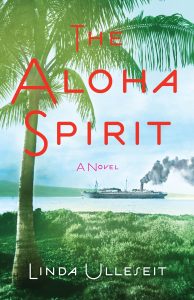Write What You Don’t Know
 Many writing teachers tell new authors to write what they know. That has value if you are describing a setting, for example. It helps to know how the place looks, feels, smells, and sounds. But what if you write fantasy? No one knows what it’s like to live on another planet or have super powers. Historical fiction can also be a little tricky. In my novels, I want to accurately portray a historical figure or event, but often there are huge gaps in what I need to know for the story that no amount of research will solve.
Many writing teachers tell new authors to write what they know. That has value if you are describing a setting, for example. It helps to know how the place looks, feels, smells, and sounds. But what if you write fantasy? No one knows what it’s like to live on another planet or have super powers. Historical fiction can also be a little tricky. In my novels, I want to accurately portray a historical figure or event, but often there are huge gaps in what I need to know for the story that no amount of research will solve.
In my novel The Aloha Spirit (August 2020, She Writes Press), I was able to easily research Honolulu during World War II. No documents or photos, though, could tell me what it was like to live next door to a Japanese neighbor after the Pearl Harbor attack or to worry for someone you loved who worked there. If I wanted to tell the story, I had to fill the blank spaces with imagination.
It is true, no matter what you write, that a plain telling of the events does not make a story. Dates, who was there, and what happened are important, but the story lies in the reactions of the people. When I taught sixth grade, students (usually male) often wrote stories of basketball or football games that sounded like a play-by-play announcer.
They were boring. I told them I needed to know how proud the character was to make a three-point basket, how excited to make that touchdown, how anxious to do well, or how devastated at trying hard and losing. The story, I told them, is in the emotion, not the action. In fact, if you ask three people who experienced the same event to tell you about it, you will get three stories because it affected each of them differently. That is why readers can enjoy many different novels about Pearl Harbor or World War II or basketball.
The genre of historical fiction has experienced an upsurge in popularity because female writers are now envisioning historical events from the point of view of women whose thoughts have been lost or were never recorded. It’s dangerous to project 21st century women’s views onto a historical character, but if the research is done well her voice can be heard.
One of my favorite revisionist writings is the story of Esther, from the Bible. Esther has always been portrayed as meek and pure as she persuades her husband, the Persian king, not to annihilate the Jews. More recently, however, novels and bible study guides explore Esther’s confidence, assertiveness, and ability to seize opportunities. The events haven’t changed at all, but the story has. As a result, women can be inspired by a historical character they can relate to.
My advice to writers is to write what you don’t know. Use fiction to explore a subject or character that may be intimidating to you. Create characters that rise above discrimination, bias, ignorance, and entitlement. Find the universal truth that makes us all human by writing the emotion you know. Write about jealousy, betrayal, true love, honesty, perseverance. Research the heck out of what you don’t know and blend that with the emotion you know. There’s always the danger of getting it wrong, of course, but treat the subject matter with compassion and trust your characters. If you create characters with emotions readers can relate to, you can create stories that matter.
—
THE ALOHA SPIRIT
 The spirit of aloha is found in Hawaii’s fresh ocean air, the flowers, the trade winds . . . the natural beauty that smooth the struggles of daily life. In 1922 Honolulu, unhappy in the adoptive family that’s raised her, Dolores begins to search for that spirit early on—and she begins by running away at sixteen to live with her newlywed friend Maria.
The spirit of aloha is found in Hawaii’s fresh ocean air, the flowers, the trade winds . . . the natural beauty that smooth the struggles of daily life. In 1922 Honolulu, unhappy in the adoptive family that’s raised her, Dolores begins to search for that spirit early on—and she begins by running away at sixteen to live with her newlywed friend Maria.
Trying to find her own love, Dolores marries a young Portuguese man named Manolo His large family embraces her, but when his drinking leads to physical abuse, only his relative Alberto comes to her rescue—and sparks a passion within Dolores that she hasn’t known before. Staunch Catholics can’t divorce, however; so, after the Pearl Harbor attack, Dolores flees with her two daughters to California, only to be followed by both Manolo and Alberto.
In California, Manolo’s drinking problems continue—and Alberto’s begin. Outraged that yet another man in her life is turning to the bottle for answers, Dolores starts to doubt her feelings for Alberto. Is he only going to disappoint her, as Manolo has? Or is Alberto the embodiment of the aloha spirit she’s been seeking?
—
Linda Ulleseit, born and raised in Saratoga, California, has an MFA in writing from Lindenwood University. She is a member of the Hawaii Writers Guild, Marketing Chair for Women Writing the West, and a founding member of Paper Lantern Writers. Linda is the author of Under the Almond Trees, which was a semifinalist in the Faulkner-Wisdom Creative Writing Contest, and The Aloha Spirit, to be released August 18, 2020.
Linda believes in the unspoken power of women living ordinary lives. Her books are the stories of women in her family who were extraordinary but unsung. She recently retired from teaching elementary school and now enjoys writing full-time, as well as cooking, leatherworking, reading, gardening, spending time with her family, and taking long walks with her dogs. She currently lives in San Jose with her husband. They have two adult sons and two yellow Labradors. For more about Linda and her books, visit: www.ulleseit.com
Category: How To and Tips































Linda, this is a fun article. I agree, research what you don’t know and blend with the emotions we do know. Well said!
Your post really spoke to me- you explained “creating” so well. Plus Hawaii is a paradise to fantasize about right now. All the best to you. Aloha!
Thank you, Jena! I agree that Hawaii is a great place to dream about, especially when we can’t go there!